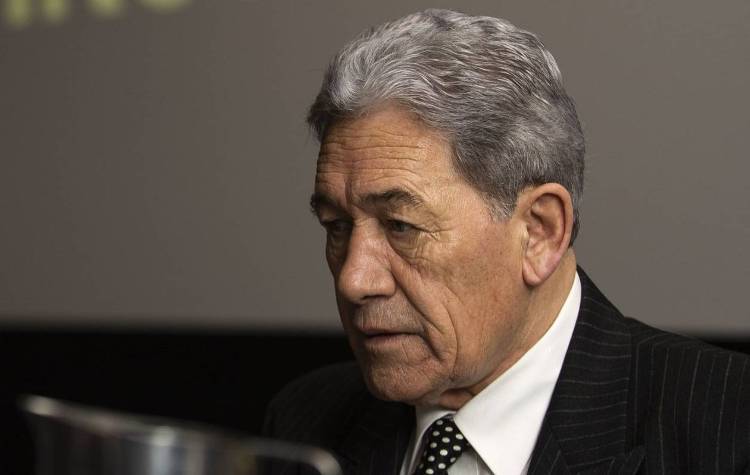NZ Expands Sanctions on Russia, Allies and ‘Shadow Fleet’ Amid Ukraine War
“New Zealand must continue to hold Russia and its enablers accountable,” said Minister Peters.

- Country:
- New Zealand
In a decisive move underscoring New Zealand’s commitment to international law and support for Ukraine’s sovereignty, Foreign Minister Winston Peters has announced a new wave of sanctions targeting individuals, entities, and maritime assets aiding Russia’s war of aggression against Ukraine.
This latest round, part of New Zealand’s ongoing implementation of the Russia Sanctions Act 2022, directly targets contributors to Russia’s military-industrial complex, including overseas enablers in North Korea, Iran, and Belarus. Also included are 27 vessels belonging to Russia’s so-called ‘shadow fleet’ — ships being used to covertly transport Russian oil and circumvent global sanctions.
“New Zealand must continue to hold Russia and its enablers accountable,” said Minister Peters. “Military support from actors in North Korea, Iran, and Belarus has helped Russia sustain its illegal war of aggression against Ukraine.”
Targeting Global Support Networks for Russia’s War Machine
The newly imposed sanctions designate 18 individuals and entities actively assisting Russia’s war efforts. These actors span multiple countries and sectors, including weapons suppliers, military equipment manufacturers, and logistics facilitators. This builds on an established sanctions regime that aims to choke off Russia’s capacity to finance and sustain its invasion of Ukraine.
Of particular concern is the growing evidence of military material support flowing into Russia from authoritarian allies. North Korean ballistic missiles, Iranian drones, and Belarusian logistical support have each played documented roles in prolonging the conflict. New Zealand’s response — coordinated with its international partners — seeks to cut off these lifelines.
Disrupting the ‘Shadow Fleet’: Maritime Sanctions and Oil Price Cap Enforcement
An additional layer of this latest sanctions package targets Russia’s shadow fleet, a covert network of tankers operating under flags of convenience, designed to skirt oil trade restrictions and continue profiting from fossil fuel exports.
The 27 vessels now sanctioned have been involved in transporting Russian oil in violation of the G7 Plus price cap, which New Zealand formally endorsed in 2023. These vessels often use deceptive shipping practices, such as turning off transponders, undertaking ship-to-ship transfers at sea, and obscuring their ownership structures to avoid detection.
“The designation of Russia’s ‘shadow fleet’ reflects a joint effort with likeminded international partners to prevent sanctions evasion and to maintain the pressure on Russia in support of a just and lasting peace for Ukraine,” said Mr Peters.
A Consistent Policy Since 2022: Over 1,800 Designations and Counting
Since the passage of the Russia Sanctions Act in March 2022, New Zealand has imposed a wide-ranging sanctions regime that includes:
-
Over 1,800 designations of individuals, companies, banks, and vessels
-
Travel bans for sanctioned individuals
-
Asset freezes and restrictions on investments and exports
-
Trade controls on luxury goods, strategic technologies, and oil-related services
-
Diplomatic and humanitarian support to Ukraine
New Zealand’s sanctions framework operates in coordination with key international partners such as the EU, US, UK, Australia, Canada, and Japan, reinforcing the global stance against Russia’s actions in Ukraine.
What’s Next: New Zealand’s Commitment to Ukraine and Global Rules-Based Order
The latest designations represent not only an ongoing commitment to Ukraine’s defense, but also to the broader principle of a rules-based international order. As the war enters its third year, New Zealand remains firm in its stance that aggression and violations of sovereignty must be met with accountability.
For more information about specific sanctions, travel bans, export controls, and additional measures, the Ministry of Foreign Affairs and Trade (MFAT) continues to update its public resources on its official website.
ALSO READ
South Korea halts loudspeaker broadcasts along border with rival North Korea, reports AP.
South Korea Silences Loudspeakers to Mend North Korea Ties
Tragedy Strikes in Iran's Port: Methanol Fire Claims Lives
Trump's Waning Confidence in Iran Nuclear Deal
Trump's Confidence Wanes in Iran Nuclear Deal Prospects










